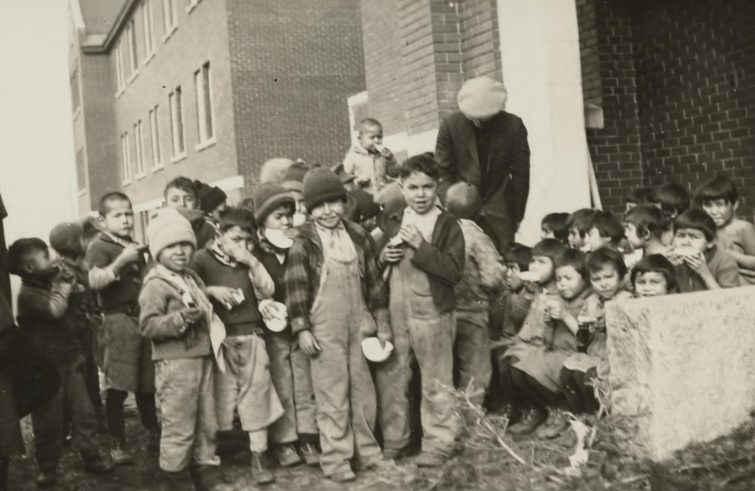
“I am at a loss for words to describe the situation. In the past few weeks, I have been reading more and listening to better understand the reality of the residential schools but also the impact it had on the Indigenous peoples. As a bishop, I join with other bishops and religious leaders in Canada, expressing my apology for the role the Church played in the residential school system.” These are the opening words of a video recorded and posted yesterday to the Archdiocese of Ottawa-Cornwall’s YouTube channel by Archbishop Marcel Damphousse to express the Catholic Church’s sorrow and apologies on the day Canada marks National Indigenous Peoples Day. The Day was first proclaimed by Canada’s federal government in 1996 and is celebrated every year on the day of the Summer Solstice recognising and celebrating the cultures and valuable contributions of the First Nations, Inuit and Métis Indigenous peoples of Canada.
https://www.youtube.com/watch?v=NPL4SR1R2SU&t=1s
The tragic discovery of the remains of 215 children on the grounds of the former Kamloops Residential School is an open wound. Those corpses are the most dramatic evidence of the systemic oppression, inequality and discrimination perpetrated against indigenous peoples in the past, and of the ongoing injustices and challenges they continue to face.
An estimated 150,000 indigenous children were forcibly removed from their families and communities and sent to places where their language and culture were forbidden in an attempt to intentionally wipe them out.
Those children were subjected to emotional, physical and sexual abuse. The Truth and Reconciliation Commission reported that thousands of children who were sent to residential schools never returned to their home communities. Thus, the exact number of children who died may not be known, and many parents have never found out what happened to their children. Archbishop Damphousse referred to this tragic page in Canadian history in his video-message: “As a Church, we failed”, he said. “Not only to be authentic witnesses to the goodness of Jesus Christ, but we sinned against our Brothers and Sisters in our care.” “Words can not undo the hurt or return the deceased children to their families”, added the Archbishop. “As a member of the Catholic Church, and as a Bishop, I am so sorry. I know I am not alone in my sorrow and contrition. I add my voice to those who are asking the Holy Father, for an apology to the Indigenous Peoples of Canada.” The Bishops issued a “Special Prayer for Tolerance, Forgiveness and Reconciliation” to mark the Day.
In a statement released a few days ago the Canadian Conference of Catholic Bishops announced that a delegation of Indigenous people from Canada will meet with Pope Francis at the Vatican before the end of the year. “The Bishops have been preparing for this project – in conversation with Indigenous people and communities, with the First Nations, Métis and Inuit national organizations” – explains the statement – “for over two years now”. But the project was unfortunately stalled by the global pandemic caused by COVID-19. The meeting with the Pope will include the participation of a diverse group of “Elders/Knowledge Keepers,” residential school survivors and youth from across the country.
“The Government of Canada continues to call on the Catholic Church to issue a formal apology to Indigenous peoples impacted by the residential school system”, wrote Canadian Prime Minister Justin Trudeau in a statement released yesterday, June 21, National Indigenous Peoples Day. “Taking responsibility is one of the Calls to Action of the Truth and Reconciliation Commission, and is an essential step to advancing truth and reconciliation in Canada.”
Referring to the tragic discovery at Kamloops, the Prime Minister called upon the whole country to “never forget those innocent souls lost – this must be our collective commitment toward reconciliation.”
“Saying sorry for these tragedies is not enough”, the Premier remarked. “We need to right past wrongs and address ongoing challenges, and we can only accomplish this with action.” Trudeau assured that the Government of Canada has been working in partnership with Indigenous peoples, provinces, and territories to implement a set of “Calls to action”, which is “our priority”, he said.












